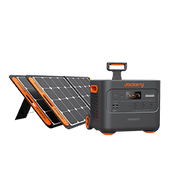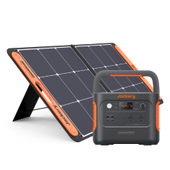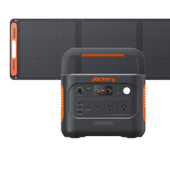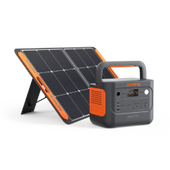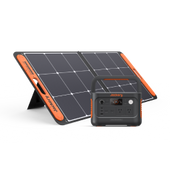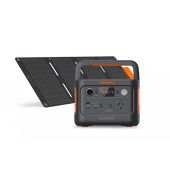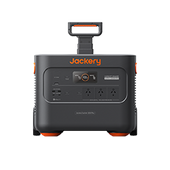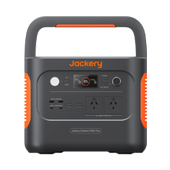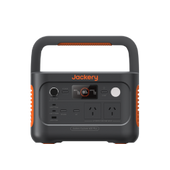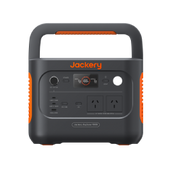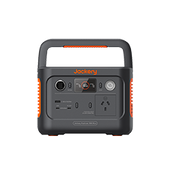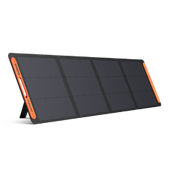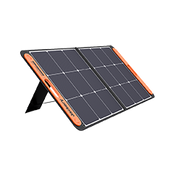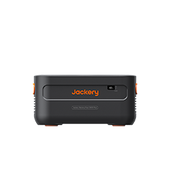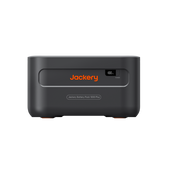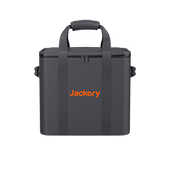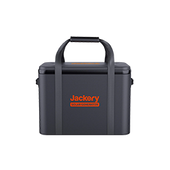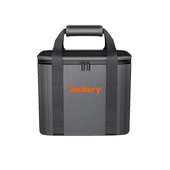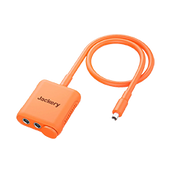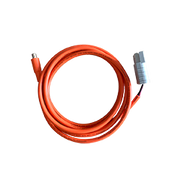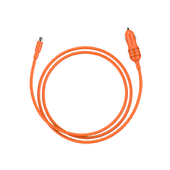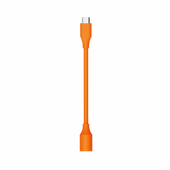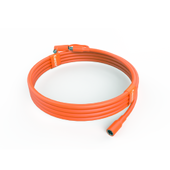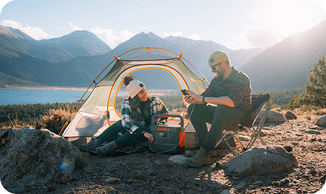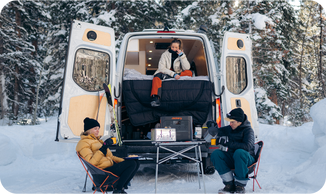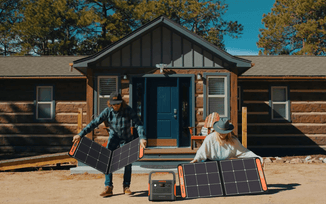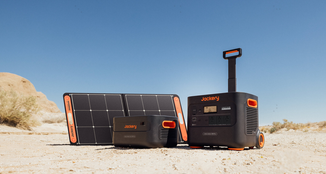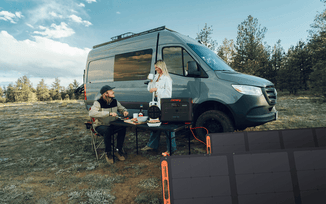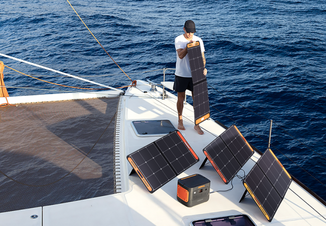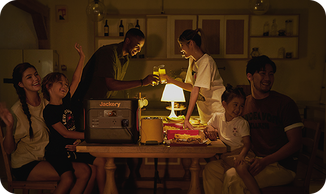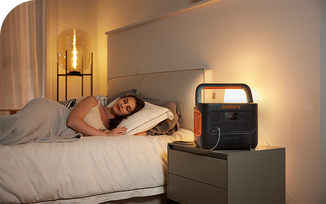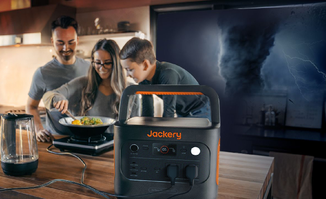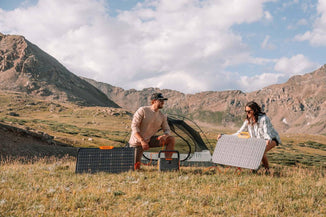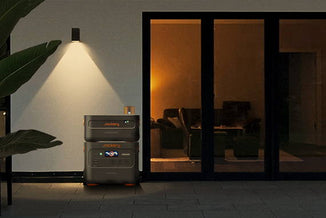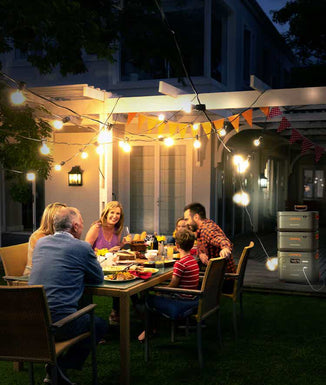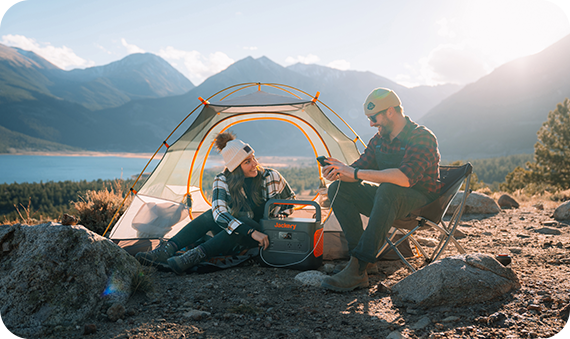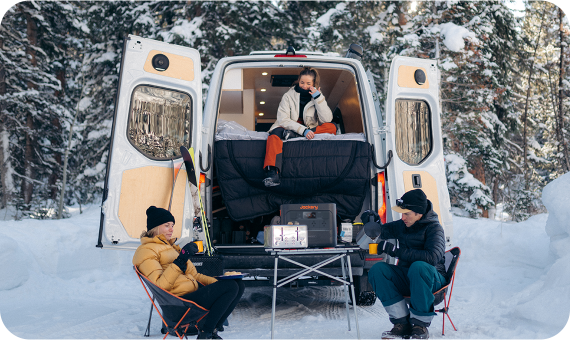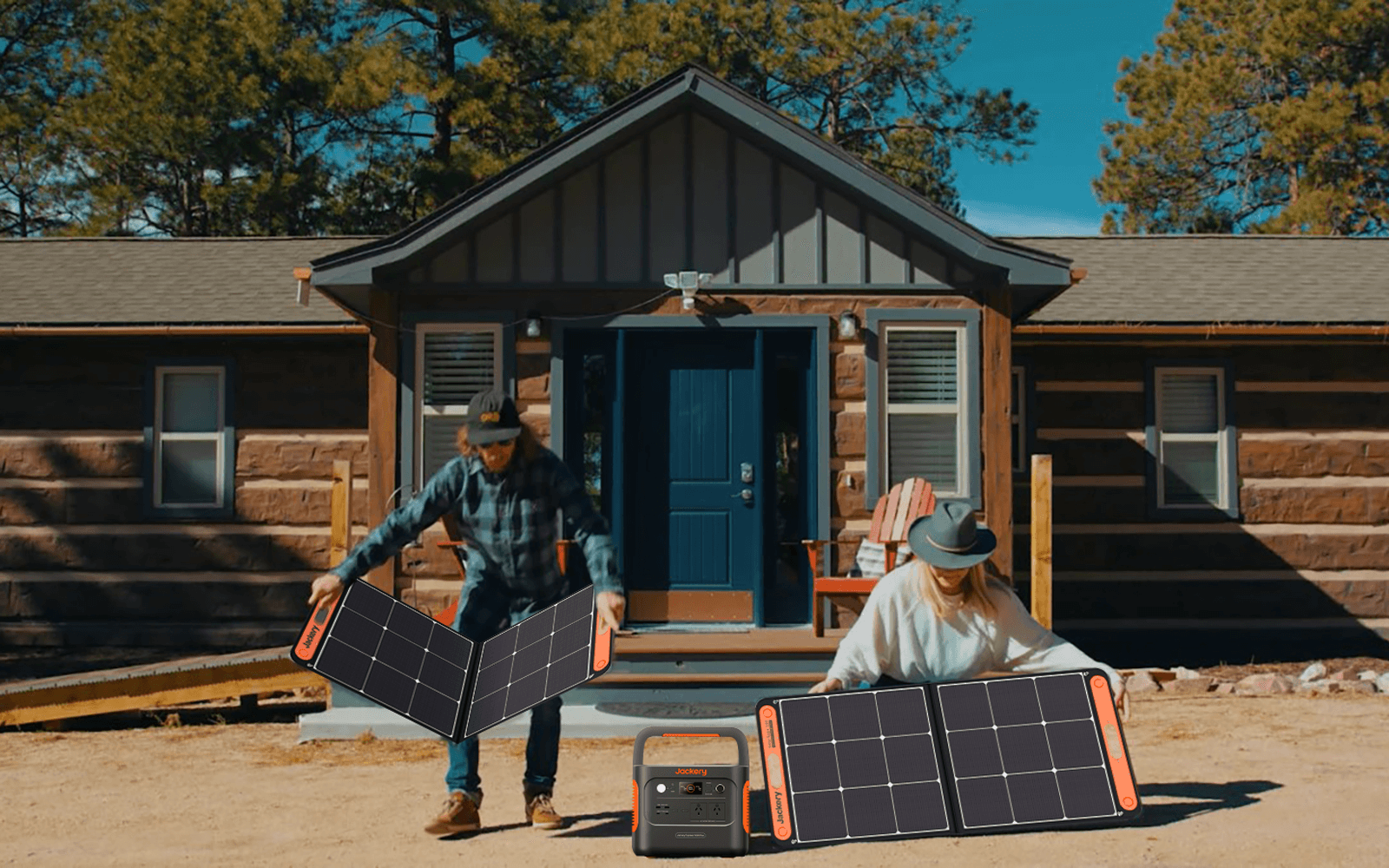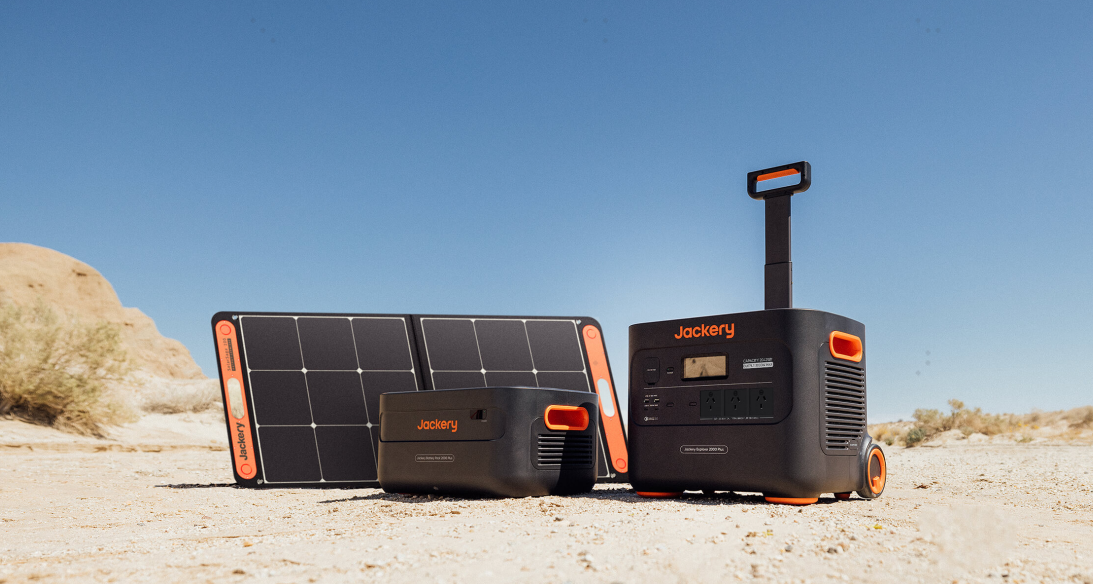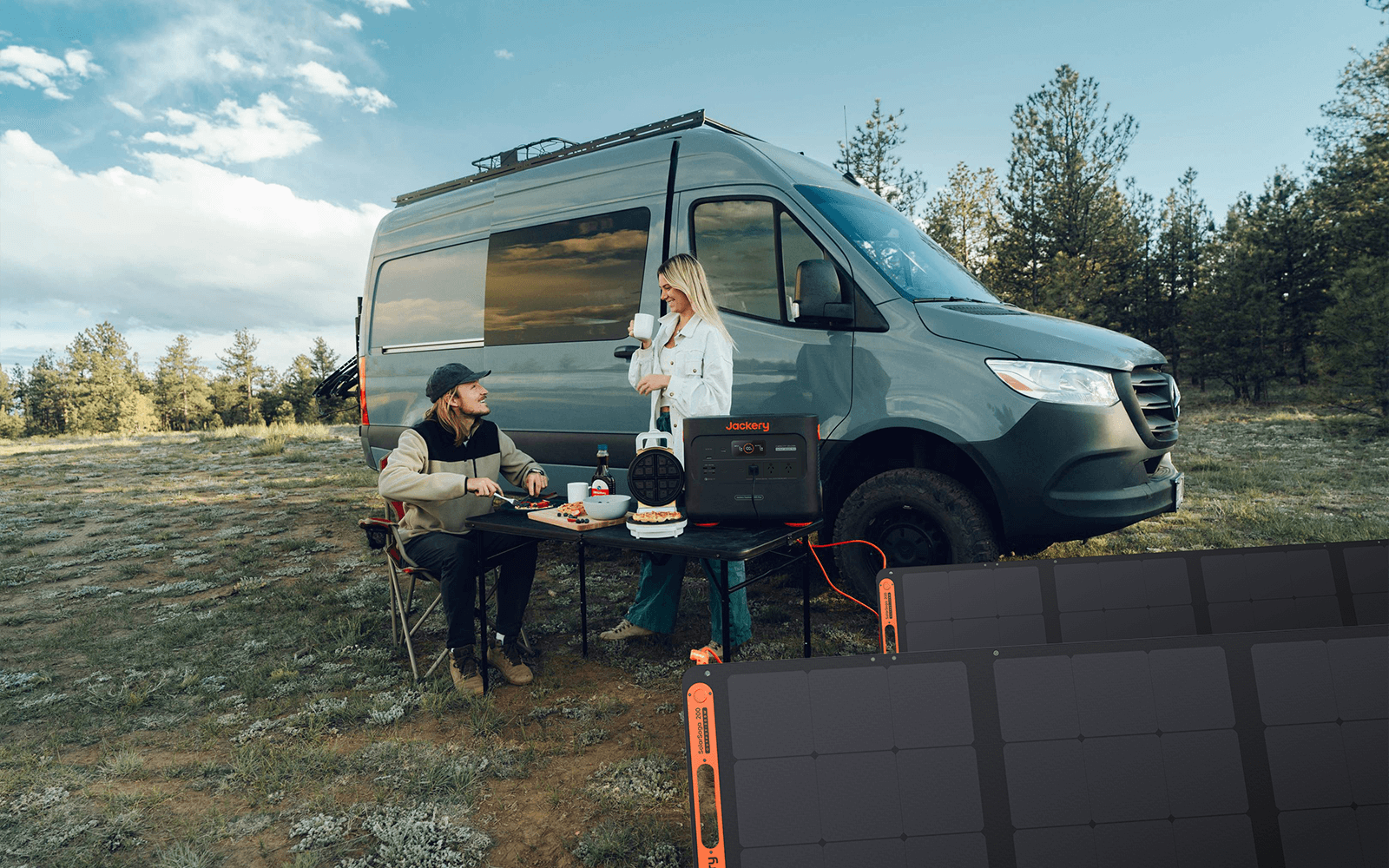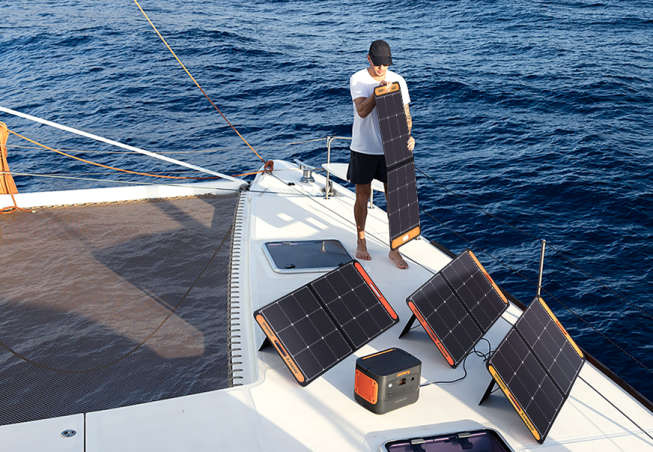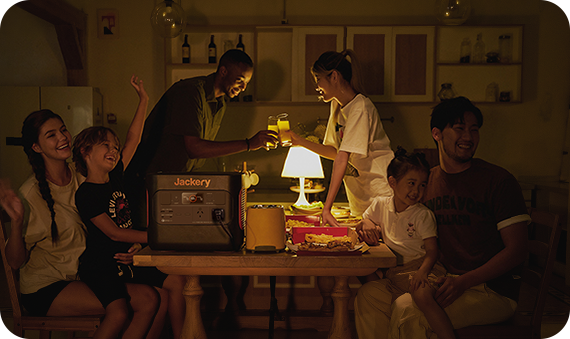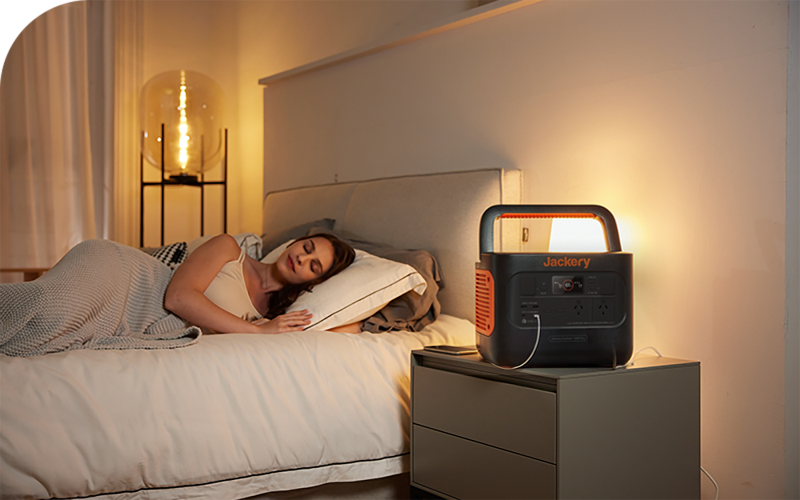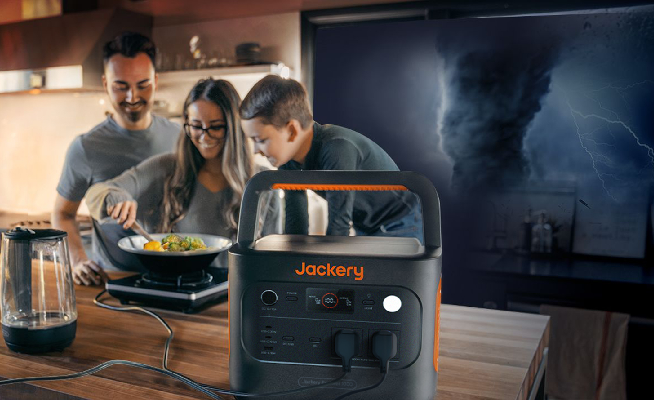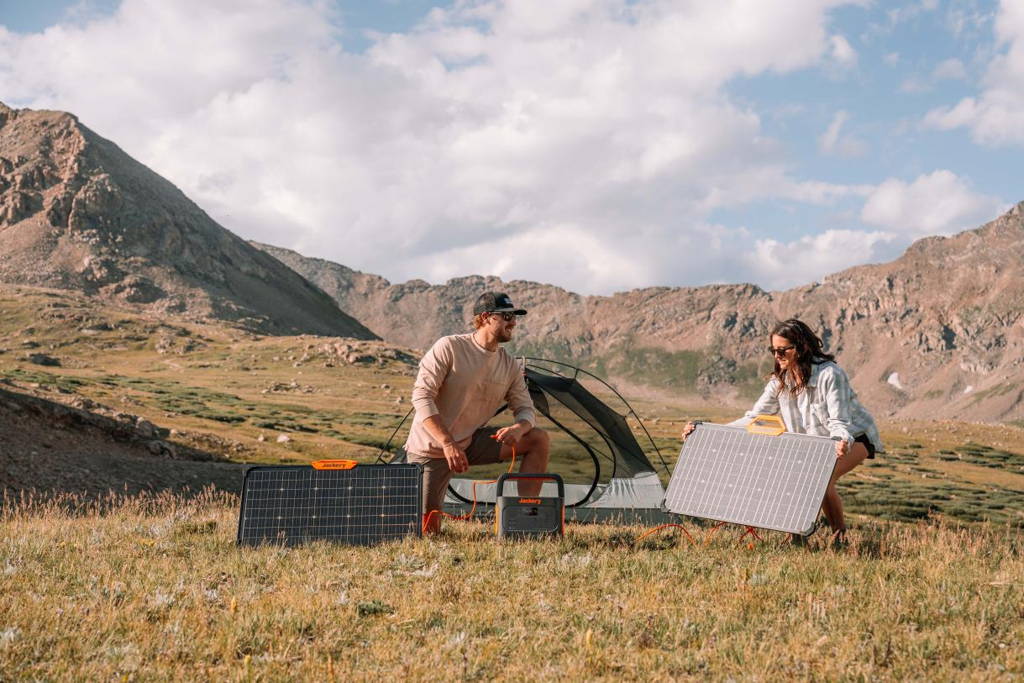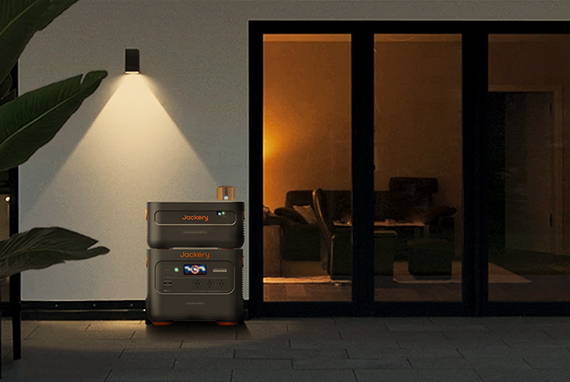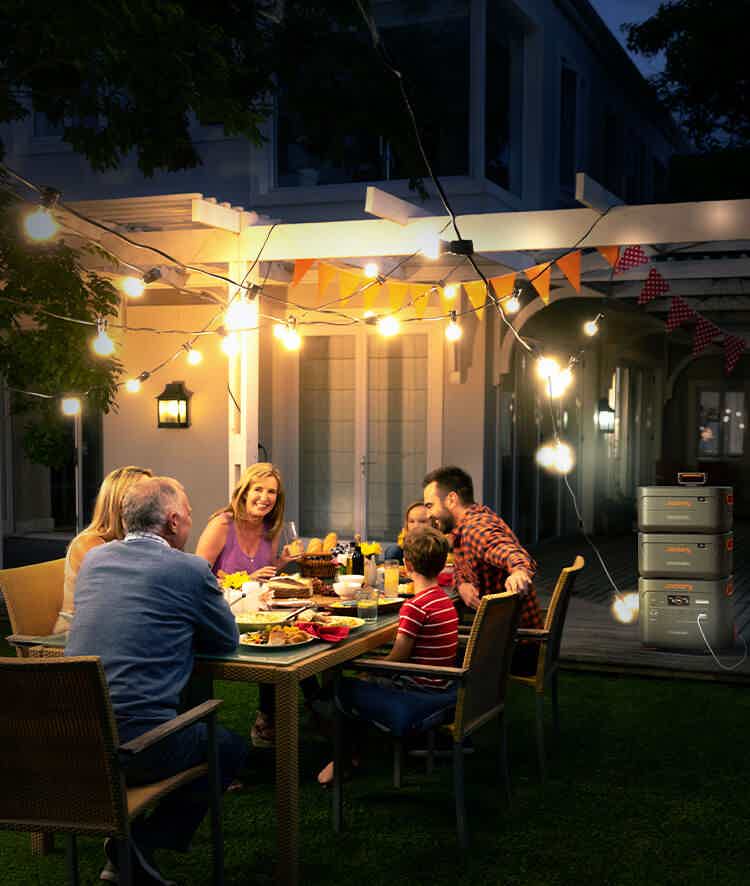How to Choose The Best Caravan Generator in Australia
Nowadays, a quality caravan generator is a necessity for touring Australia. The ability to be off-road in a remote location and still have access to portable 240-volt power is a fantastic option for powering everything you take on vacation.

A solar generator can reassure that a backup power source is readily available if other power sources are unavailable. Numerous types and sizes of generators are appropriate for various caravan applications.
Choosing a caravan generator is sometimes simple due to dimensions, noise, and power output. This comprehensive guide to caravan generators explains the quietest and best generators on the market, how many watts a caravan use, and how to choose one.
|
Products |
Image |
Capacity |
AC Power |
Peak Power |
Noise Level |
Weight |
|
Solar Generator 2000 Pro |
 |
2160Wh |
2200W |
4400W |
53dB |
17.5±0.5lbs (8.0±0.3Kg) |
|
Solar Generator 1000 Pro |
 |
1002Wh |
1000W |
2000W |
46dB |
17.5±0.5lbs (8.0±0.3Kg) |
We strongly suggest Jackery Solar Generators as the caravan generators that will power most outdoor appliances. Due to their portability and capacity, they can be taken anywhere and anytime.
|
Key Takeaways: |
|
• Many caravan owners will bring a portable generator to charge their van AC or operate appliances. • A battery weighs significantly less than a generator, but a generator provides more power on demand. • Compared with gas, diesel, inverter, and solar generators, the solar generator is best for caravans due to its portability, capacity, low noise level, and clean energy. • Typically, a caravan consumes between 1kW and 2kW of power, with heating and ventilation being the most energy-hungry appliances. • Here, recommend Jackery Solar Generator 2000 Pro and 1000 Pro to power your 240V caravan with high-capacity solar energy. • When choosing a caravan generator, consider its noise level, capacity, portability, and budget. |
What Is A Caravan Generator?
If you plan a caravan trip with free-stay camping, you will likely need a caravan generator to power your appliances.
Many caravan owners will bring a portable generator to charge their van AC or operate appliances requiring more power, such as caravan air conditioning units, washing machines, microwaves, kettles, and hair dryers.
With a generator, you can access a power source that can provide 240v electricity for your air conditioning, various appliances, and battery charging. However, due to the wide variety of generators available, it may take some research to find the one that is ideal for your needs.
Before proceeding to the next part, it is essential to note the following electrical terms about the caravan generator:
[video: https://www.youtube.com/watch?v=epNV58OJ-uIv]
Caravan Generator VS. Battery System
While both power sources have their benefits, battery systems are typically more sustainable, convenient, silent, and eco-friendly. Modern battery systems, particularly lithium batteries, have remarkable energy storage capacities. They can be charged via solar panels, a renewable energy source ideal for protracted off-the-beaten-path excursions.
A battery weighs significantly less than a generator, so investing in a solar system will dramatically reduce your payload. In addition to these benefits, if you have enough solar power and a high-quality battery to store your energy, you can operate even the most power-hungry appliances, such as air conditioning, on your battery system.
A generator provides power on demand. In other words, you receive it when the generator is on, but there are no stores. Advancements in inverter generator technology have made them quieter and more efficient than ever before, even though conventional generators are notoriously loud and may be prohibited in certain caravan parks.
However, a solar generator has all the advantages of batteries and conventional generators, such as sustainable and clean energy that does not harm the environment. A solar generator is as quiet as a battery, particularly when compared to a fuel generator. The solar generator is consequently the best caravan generator.

What Are The Types of Caravan Generators?
When camping, a generator can power the lighting in your caravan and charge your phone. When the electricity goes out, and you're not hooked up to the grid, you can use a generator to keep the lights on. The following varieties of caravan generators are available:
The most common generator form, gasoline, is an excellent choice for low-powered appliances and tools. Cost-wise, gasoline generators are typically the least costly, but gasoline is more expensive over time than other fuels. Despite gas availability, this may not be the case during an emergency. It is only safe to store petroleum in an airtight container for three to six months.
Diesel generators are effective in harsh environments, such as frigid temperatures. Because diesel's low combustion temperature places less strain on the engine, these varieties of generators are more durable. Diesel generators are more cost-effective than gasoline generators since they use less fuel per output. However, these generators are typically heavier and less portable as a result.
Inverter generators operate differently than conventional generators. Instead of working at a constant speed, the inverter generator autonomously adjusts its engine speed to meet electrical demands. It reduces both noise and fuel consumption significantly. The inverter's lower power receptacle will prevent it from powering large appliances.
Solar generators are powered by the sun's pure, renewable energy. It is the only generator that can operate securely indoors due to the absence of emissions. Solar generators typically require little maintenance. The solar generator is the best option for a caravan generator because it combines solar panels with a portable power station to convert sunlight into clean, limitless, and silent electricity.
|
Types of Caravan Generators |
Pros |
Cons |
|
Gas Generator |
l Natural gas l Common type |
l High emission l Gas is expensive l Flammable l Only for outdoors |
|
Diesel Generator |
l More efficient than gas l Cheaper to operate l Longer lifespan |
l High emission l Noisy l Only for outdoors l More expensive than gas |
|
Inverter Generator |
l Quiet l Fewer emission l Portable |
l Lower power output |
|
Solar Generator |
l No emission l Used indoor & outdoor l Low maintenance l Sustainability l Unlimited source |
l Relatively expensive but cost-effective |
In conclusion, solar generators are the best for caravans because they offer more advantages than any other variety. Solar generators produce pure, renewable energy that does not harm the environment. Traditional generators are powered by fossil fuels, contributing to air pollution and global warming. As a bonus, you can access solar energy for free instead of paying for expensive fossil fuels.
How Many Watts Does A Caravan Use in Australia?
Numerous modern caravans are equipped with 240V and DC systems so that all devices can be powered regardless of the environment. Australian regulations govern all electrical work involving 240 volts and can only be performed by a qualified and licensed electrician.
12V systems can be worked on by non-electricians, unlike 240V systems, which can only be worked on by qualified electricians. If operating on a 1V system, use the appropriate electrical cable size. Check the diameter of the conductor, except the cable's insulation, to ensure it is the correct measurement for your 12V system.

How Many Watts Does A Caravan Use?
Most people anticipate that their caravan's electrical system will be able to meet their energy requirements without a hitch, as trains are increasingly outfitted with amenities such as air conditioning, heating, onboard entertainment, and even washing machines.
To determine how much electricity you need, aggregate the amount of current used by each of your electrical devices throughout their use. In addition, you must account for the self-discharge of your battery(s) and any efficiency losses.
Typically, a caravan consumes between 1kW and 2kW of power, with heating and ventilation being the most energy-hungry appliances; the following are the watts of everyday caravan electronics:
|
Caravan Appliances |
Minimum Wattage |
Maximum Wattage |
|
Caravan AC |
1300W |
4000W |
|
Laptop |
50W |
100W |
|
Refrigerator |
100W |
200W |
|
Portable Fan |
40W |
120W |
|
Ceiling Fan |
60W |
70W |
|
Freezer |
30W |
50W |
|
Light |
5W |
10W |
|
Water Pump |
50W |
70W |
How Many Amps Does A Caravan Use?
The electricity required to power a device or appliance can be measured in either watts or amps. If you know one and the voltage, you can calculate the other.
To determine each appliance's power consumption, consult the device's product specifications or data plate. For battery-powered products (typically 12V appliances), it is simplest to refer to the product specifications.
Amps = Watts / Volts, Amp-Hours = Amp x Hours
For example, a 5-watt LED light running on a 12-volt power source will use 5W / 12V = 0.4 Amps. And if you use this light for about 2 hours, there is 0.4A* 2H = 0.8 Amp-Hours. The following are the standard Amps of caravan appliances.
|
12V Caravan |
Amps |
Hours |
Amp-Hours |
|
Water Pump |
5.2 |
0.2 |
1.04 |
|
Fridge |
5.4 |
24 |
129.6 |
|
Stove |
0.4 |
0.5 |
0.2 |
|
Shower |
1.9 |
0.1 |
0.19 |
|
TV |
5 |
0.5 |
2.5 |
|
|
|||
|
240V Caravan |
12V Amps |
Hours |
Amp-Hours |
|
Inverter |
2.1 |
0.8 |
1.68 |
|
Microwave |
176.5 |
0.3 |
2.25 |
|
Hair Dryer |
147.1 |
0.1 |
0.625 |
|
Coffee Maker |
176.5 |
0.2 |
1.5 |
How Much Solar Power Does A Caravan Need?
Whether or not you intend to stay in powered caravan parks will determine your energy requirements. Even if they remain in campgrounds the majority of the time, more individuals are installing solar panels for use as a caravanning energy source. It makes perfect logic. It is free and environmentally friendly energy.
Solar energy is gaining popularity in Australia and is even more advantageous for caravans. Solar provides free power from the sun to charge a battery, allowing you to travel to remote locations – without access to mains electricity – while still being able to use your refrigerator and other fundamental appliances.
A caravan repair service that provides caravan electrics will be able to install a solar system on your caravan and give you the best advice regarding a 12-volt system.
|
Caravan Appliances |
Wattage |
Hours |
Solar Power Needed |
|
Caravan AC |
1300W |
2H |
2600Wh |
|
Laptop |
50W |
0.5H |
25Wh |
|
Refrigerator |
100W |
12H |
1200Wh |
|
Portable Fan |
40W |
2H |
80Wh |
|
Ceiling Fan |
60W |
3H |
180Wh |
|
Light |
5W |
3H |
15Wh |
|
Water Pump |
50W |
0.6H |
30Wh |
The Best Caravan Generators with Jackery
Since a caravan requires at least 1kW to 2kW of power, a caravan generator of 1000Wh or 2000Wh is sufficient. Solar generators are the best option for powering a caravan because they are clean, limitless, user-friendly, and silent.
Jackery is the leading brand of portable power stations, solar panels, and solar generators. Technically, a solar generator is a solar power system that incorporates a mobile power station with solar panels. It emits no toxic gases and operates extremely cleanly, causing no environmental damage. Jackery Solar Generators offer a dependable green energy solution for caravan, RV, off-grid, and home backup applications.
Jackery Solar Generators utilize an intelligent BMS system and pure sine wave inverter to safeguard charging devices with twelve layers of protection. The unmatched cooling system and as many as nine temperature sensors assure an industry-leading dissipation efficiency rate of 30%. Solar Generator 2000 Pro and 1000 Pro are suitable for caravan charging.
Solar Generator 2000 Pro
Jackery Solar Generator 2000 Pro is a combination of SolarSaga 100W and Explorer 2000 Pro that can operate 98% of caravan appliances, such as a refrigerator, microwave, fan, and more, with a capacity of 2160Wh. This solar generator uses pure, limitless solar energy and an intelligent MPPT controller to power your caravan.

The handle's ergonomic design provides a comfortable hold. And it is utilized with a single touch after a 60-second configuration that is simple and quick to enjoy exceptional charging efficiency. The Explorer 2000 Pro makes noise less than 53 dB, ensuring a peaceful and quiet charging environment.
The Explorer 2000 Pro adheres to UL safety standards in favor of its industry-leading cylindrical batteries—certified with Impact-Resistance Class 9, passing the UL drop test withstanding three impacts from 0.9m on any surface. The pure sine wave inverter maintains a constant voltage that prevents damage to equipment.
Product Specs
• Output Ports:3*AC Outputs: 120V, 60Hz, 2200W, 4400W Peak; 3*USB-A Outputs: 18W Max, Quick Charge 3.0; 2*USB-C Outputs: 100W Max, 5V, 9V, 12V, 15V, 20V up to 5A; 1*Carport: 12V10A.
• Charging Methods: Explorer 2000 Pro + 6*SolarSaga 100W = 5.5H, Explorer 2000 Pro + 4*SolarSaga 100W = 7.5H, Explorer 2000 Pro + 3*SolarSaga 100W = 10H, Explorer 2000 Pro + 2*SolarSaga 100W = 13.5H, Explorer 2000 Pro + 1*SolarSaga 100W = 24H, AC adapter = 2H, Carport = 24H.
Solar Generator 1000 Pro
Jackery Solar Generator 1000 Pro has a 1002Wh capacity, 1000W inverter power, and 2000W peak power to charge caravan appliances. It incorporates SolarSaga 100W / 80W and Explorer 1000 Pro portable power stations. Easy to set up in just a minute, you'll have clean energy wherever you go in no time.

The foldable handle is designed for portability. With a lengthy lifespan of 1,000 charge cycles and a lightweight design, this portable power source enables you to participate in any outdoor activities. The pure sine wave inverter safeguards your appliances with stable power. This product has an incorporated battery management system (BMS) to monitor and protect battery life—the LED light with three modes of brightness aids to meet your outdoor needs.
The low self-discharge rate allows the battery to last 365 days at 80% capacity, making it an ideal companion for off-grid living and power disruptions. The MPPT technology guarantees solar recharge efficiency of 99 percent. The power station can be ultimately charged in under 1,8 hours.
Product Specs
• Capacity:1002Wh, 1000W Inverter, 2000W Peak.|
|
Solar Generator 2000 Pro |
Solar Generator 1000 Pro |
|
Capacity |
2160Wh |
1002Wh |
|
Bundle |
Explorer 2000 Pro + SolarSaga 100W |
Explorer 1000 Pro + SolarSaga 80W Explorer 1000 Pro + SolarSaga 80W |
|
Surge Power |
4400W |
2000W |
|
Battery Type |
Lithium-Ion |
Lithium-Ion |
|
Life Cycles |
1000 cycles to 80%+ capacity |
1000 cycles to 80%+ capacity |
|
Noise Level |
53dB |
46dB |
|
AC Input Ports |
120V, 60Hz, 15A Max |
120V, 60Hz, 15A Max |
|
DC Input Ports |
11V-17.5V, 8A Max, Double to 8A Max 17.5V⎓60V, 12A, Double to 24A/1400W Max |
12V-17.5V⎓8A Max, Double to 16A Max 17.5V-60V⎓11A, Double to 22A/800W Max |
|
Dimensions |
12.1in x 15.1in x 10.5in |
13.39in x 10.32in x 10.06in |
|
Weight |
43lbs(19.5kg) |
25.4lbs(11.5kg) |
|
Warranty |
5 Years |
3 Years |
|
Caravan Appliances |
Caravan AC(1300W): 1.3H Laptop(50W): 34.6H Refrigerator(100W): 17.3H Portable Fan(40W): 43.2H Ceiling Fan(60W): 28.8H Light(5W): 345.6H Water Pump(50W): 34.6H |
Caravan AC(1300W): 0.7H Laptop(50W): 16H Refrigerator(100W): 8H Portable Fan(40W): 20H Ceiling Fan(60W): 13.4H Light(5W): 160.3H Water Pump(50W): 16H |
How to Choose A Caravan Generator
In selecting a generator, power output is one of many considerations. Here are some essential considerations to keep in mind when choosing between several different caravan generators.
Noise can be a significant factor when caravan camping, particularly in shared campgrounds or parks. To lessen the impact of noise pollution, choose a quiet generator. As previously stated, solar generators are more silent than conventional generators, which is a significant benefit.
Consider the generator's dimensions, weight, and portability features, such as handles or wheels. A smaller, lighter generator will be easier to transport and store; given that generators are typically stored in the front toolbox when caravanning and camping, the weight of tiny camping generators is an important consideration, especially if you travel around Australia full-time.
The power capacity of a caravan generator is crucial because it determines how much energy it can store and, consequently, how long it can operate. The longer the cord connecting the appliances to the generator, the more the power will be diminished, with anything longer than 3 to 4 meters marginally declining the generator's output.
Finally, consider your budget and the generator's cost. Balance the initial investment with the long-term fuel and maintenance costs, and choose a generator that offers the best value for your specific needs.
Caravan Generator FAQs
These are the most frequently requested caravan generator questions in Australia.
1. What size of solar generator do I need for my caravan?Calculate the energy you need if you consider purchasing a solar generator for your caravan. Depending on the user's needs, Jackery Portable Power Stations have capacities ranging from 240Wh to 2016Wh. The formula for calculating the recharge time of your device is as follows:
Working Time = Power Station Capacity*0.85 / Your Device's Operating Wattage
For instance, charging a 100W caravan refrigerator with Solar Generator 2000 Pro (2160Wh capacity) will take 17.3 hours (2160Wh*0.85/100W).
2. How many solar panels do I need for my caravan?Typically, a caravan requires between 1kW and 2kW of electrical power to generate energy. To reside in a train, you'll need a solar system to generate enough electricity to meet this estimated daily demand.
Jackery provides access to 100W and 80W SolarSaga solar panels. The Solar Saga 100W has two kickstands that can be positioned securely on any surface. The solar panel uses multi-layered cell technology to generate energy from sunlight and outperforms conventional panels by up to 23% in conversion efficiency.
|
Product |
Jackery SolarSaga 100W Solar Panel |
||
|
Dimensions |
Folded: 24 x 21 x 1.4 in |
Unfolded: 48 x 21 x 0.2 in |
Weight: 10.33 lbs |
|
Solar |
Peak Power: 100W |
Power Voltage: 18V |
Power Current: 5.55A |
|
Efficiency |
24.3% |
||
|
Compatible With |
Explorer 2000 Pro + 6*SolarSaga 100W: 2805Wh (5.5H Recharging) Explorer 1000 Pro + 4*SolarSaga 100W: 1292Wh (3.8H Recharging) Explorer 500 + 1*SolarSaga 100W: 639Wh (9H Recharging) |
||
|
Working Hours
|
Explorer 2000 Pro + 6*SolarSaga 100W: 1.2-2.4H Explorer 1000 Pro + 4*SolarSaga 100W: 0.5-1.1H Explorer 500 + 1*SolarSaga 100W: 33Mins |
||
SolarSaga 80W's extra-white glass construction boosts conversion efficiency to an industry-leading 25 percent: certified IP68 impermeable and dustproof against extreme weather conditions. Flexible enough for outdoor use, a two-meter extension cable is provided for additional charging distance applications.
|
Product |
Jackery SolarSaga 80W Solar Panel |
||
|
Dimensions |
Folded: 35.67 x 20.79 x 1.06 in |
Unfolded: 35.67 x 20.79 x 1.06 in |
Weight: 10.33 lbs |
|
Solar |
Peak Power: 80W |
Power Voltage: 22V |
Power Current: 3.6A |
|
Efficiency |
25% |
||
|
Compatible With |
Explorer 1000 Pro + 12*SolarSaga 80W: 1468.8Wh (1.8H Recharging) Explorer 500 + 1*SolarSaga 80W: 629.8Wh (9.4H Recharging) |
||
|
Working Hours |
Explorer 1000 Pro + 4*SolarSaga 80W: 0.6-1.2H Explorer 500 + 1*SolarSaga 80W: 32Mins |
||
Final Thoughts
An essential component of their caravan and camping excursion is a generator. Others may find comfort in knowing that a backup power source is readily available if their primary power source is unavailable. Numerous types and sizes of caravan generators are suitable for various uses.
According to this post, solar generators are ideal for caravan use because they are clean, portable, simple to operate, and limitless. Jackery Solar Generators are powerful enough for use with a caravan and produce no indoor or outdoor disturbance.

